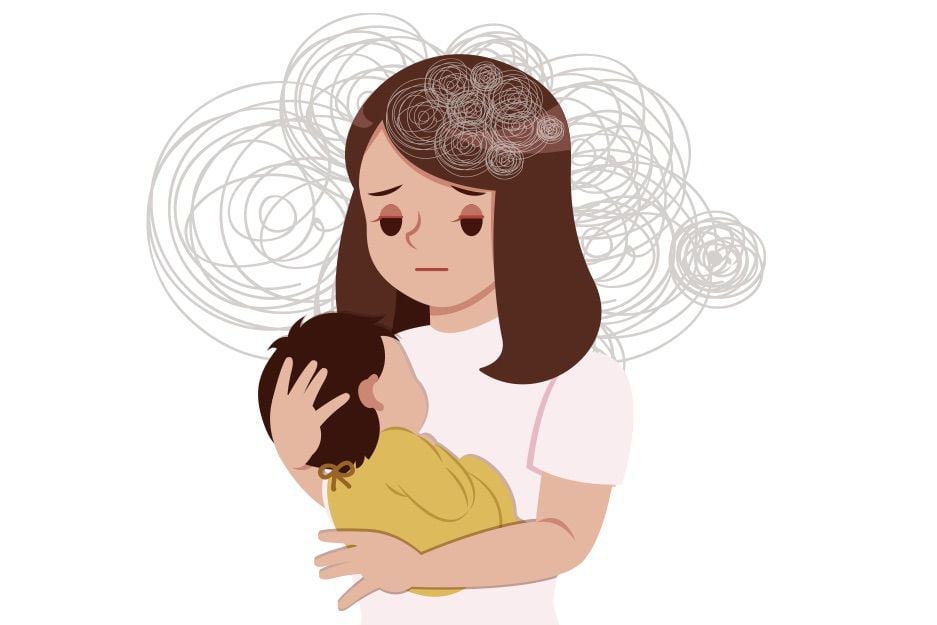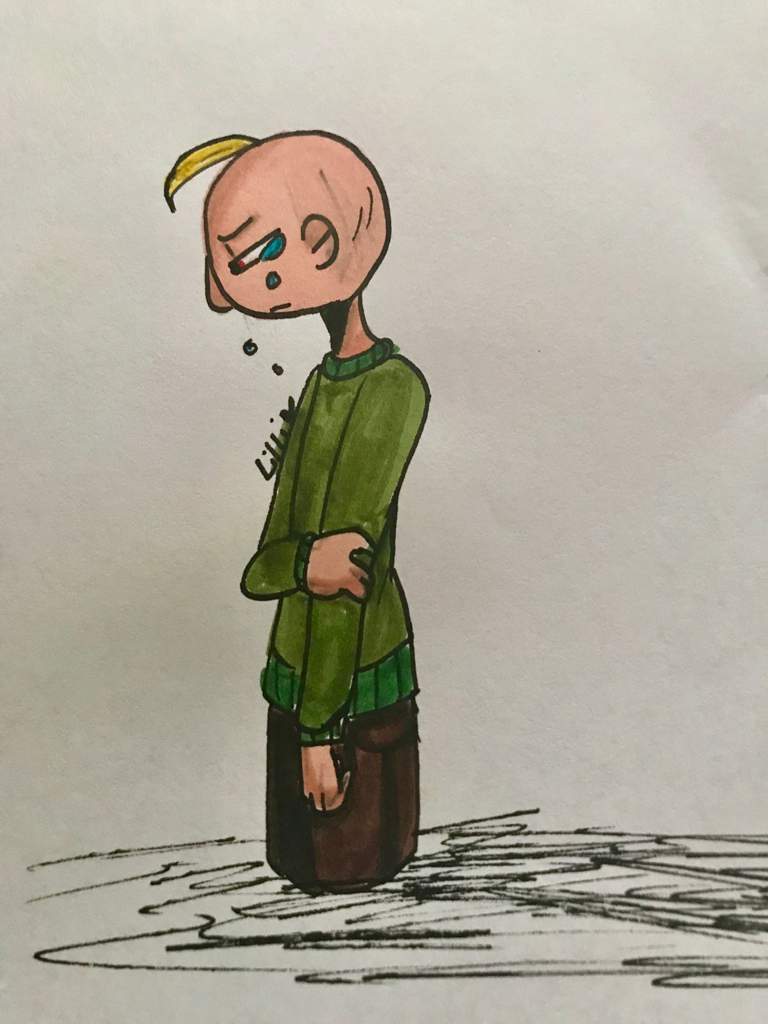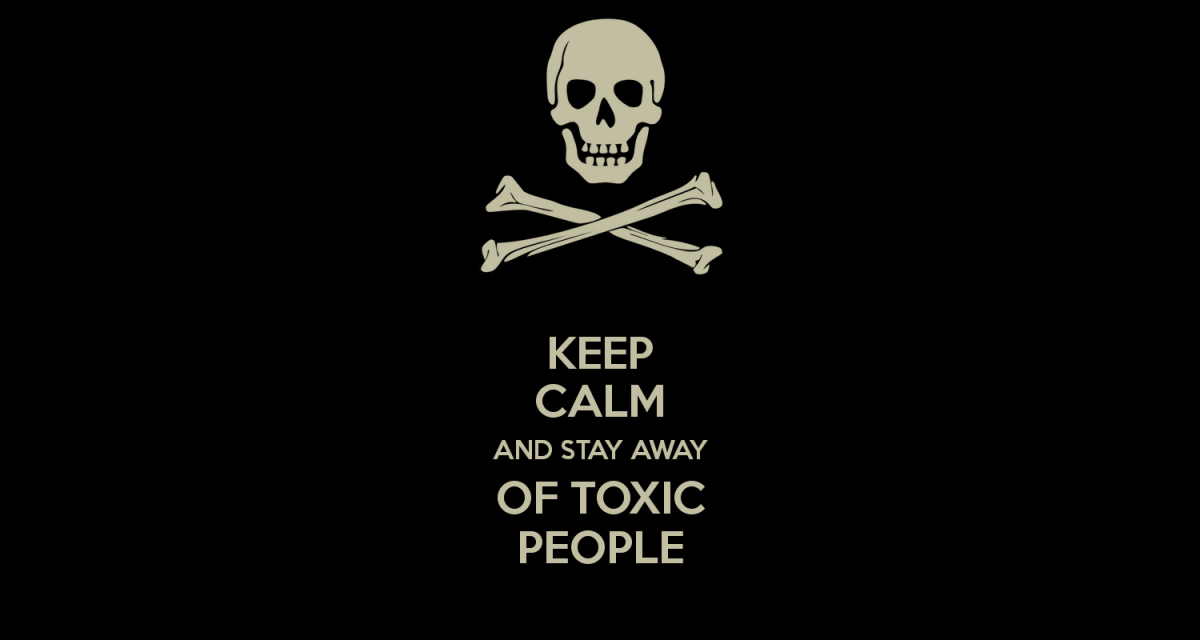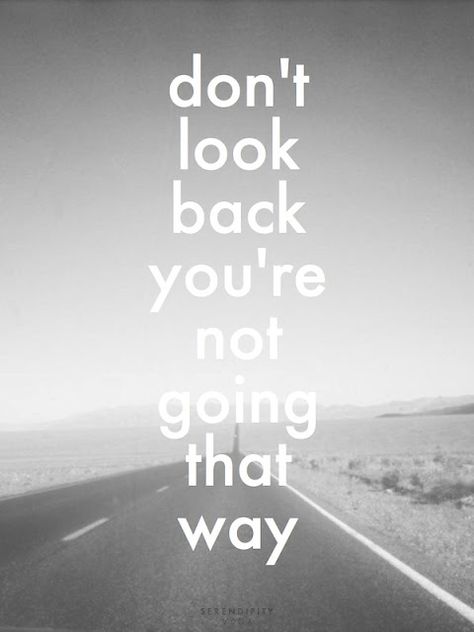Why people do not seek mental health treatment
Never Be Ashamed of Seeking Help
by Jeremy Divinity
Being human can be hard. We have these things called thoughts and emotions that have a grip on our well-being. If you’re like me, you have a past or current history of mental health issues. Those issues, or mental illnesses, often occur when those same thoughts and emotions or set off by internal or external triggers. The triggers can have a negative effect on your behavior, mental and physical health.
It’s possible that you decided to click and read this article to find some type of insight. To come to an understanding of what is actually going on inside of your head. Or to discover that there are other people in the world like yourself. People who are facing the same issues. Going through the same highs and lows of mental illness, and combatting the same stigma.
I am one of those people. By sharing not only my past experience to recovery but also by giving tips on ways to seek help, I aim to help you with your recovery.
Battling Stigmas of Mental Health
Mental illness is never fought alone. “I’m not crazy, or at least, I don’t think I am” is something I would say to myself while battling bouts of depression. At the time, I didn’t realize that I was internalizing the stigmas of mental illness. I defined myself and illness through the misconception of stigma. I had to realize that I wasn’t crazy, which was my first step to recovery.
Mental health stigma is a huge barrier on why many people don’t seek help. We don’t want to be judged for seeking treatment. We don’t want to be defined as weak or incompetent, or even worse, seen as unable to take care of ourselves.
Internalizing these stigmas is the first step to feeling shame and embarrassed. Yet, it takes an entire community to battle the stigmas of mental illness. Awareness starts with educating and informing yourself. As well as educating your family, friends, school, and co-workers in order to spread awareness. Through encouraging ourselves and others who are suffering from mental illness to speak up, we can create a culture of recovery. Spreading awareness to disseminate false stereotypes to break down mental health stigma.
Spreading awareness to disseminate false stereotypes to break down mental health stigma.
It is critical to not give into stigma and seek the help that you need. It may seem like an easy task but as we all may be aware of, it is scary.
The Roller Coaster of Mental Illness
I’ve always liked to give the metaphor of mental illness to a roller coaster. A continuous ride of twist and turns, ups and down. The roller coaster makes getting to the point of recovery feel like an uphill battle.
The roller coaster of mental illness along with the many stigmas contributed to my fear and refusal to seek help. Instead, I choose to self-diagnose. I began binge drinking, building unhealthy habits, and ignoring my symptoms. Which lead me to a deep state of depression.
Seeking help for mental health can seem like a daunting task. Especially when the roller coaster of mental illness has you trapped on the ride. Making recovery impossible and shameful. There is no shame in seeking help.
You are not alone on your battle or roller coaster of mental illness. There are other people in the world going through the same thing. So that stigma of you being crazy or weak by seeking help, it’s all fake news.
You may not always understand what’s going on in your mind or with your emotions and thoughts. But by seeking help, it can help you understand why.
Making Mental Health a Priority
Seeking help starts with yourself. Self-help is vital to the journey to recovery. Self-help begins with self-awareness and self-discipline. Self-awareness helps identify certain triggers of your mental illness. While also being aware of what helps relieve them. These triggers can range from high levels of stress, family, friends, relationships or even world events.
Whereas, self-discipline is the cornerstone of recovery. Once you’ve identified your triggers, self-discipline improves your ability to manage them. The lack of self-awareness and self-discipline can lead you down a destructive path of self-medication.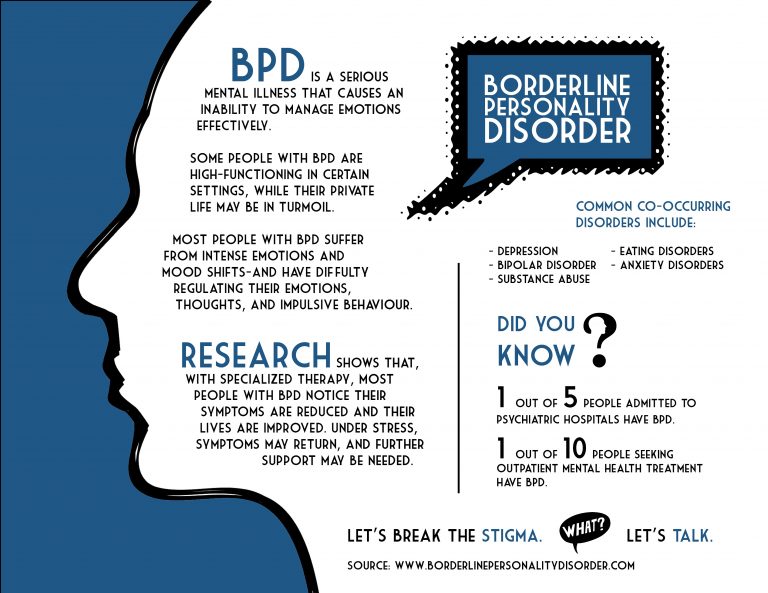 I’ve been down that path, it’s a lonely one.
I’ve been down that path, it’s a lonely one.
Give yourself permission to seek help by taking care of yourself. Exercise more often and go on that walk after work. Start watching what you eat, get extra sleep, but most importantly find out what works best for you. The most important self-care tip of all is to value your time and energy. Start small, take your time, and be patient with yourself.
The Benefits of Therapy
Recovery goes beyond self-care. Therapy can help you identify the healthy habits needed for self-care.
But then there’s the stigma of therapy that it’s only for crazy people. This was something that I believed and it prevented me from ever stepping foot in a therapist office. Which in turn, prolonged my recovery.
If it wasn’t for a close friend of mine that encouraged the idea of therapy. I would have never developed the courage and self-awareness to enter therapy. Therapy gave me the tools and techniques to live a more confident and emotionally balanced life.
Finding the right therapist can be a challenge. It is important that you and your therapist have a genuine connection and built up trust. They are someone to talk to. It feels good to have someone to help investigate your thoughts, feelings, and behaviors.
A good therapist, or also a clinical social worker, can provide the right type of insight into your recovery. They can give evidence-based tips to help you meet your recovery goals. Therapy can help you identify the healthy habits needed for self-care. Along with the providing recommendations on routines to support a healthy life.
Therapy fosters help, empowerment, and motivation. For me, therapy helped improve my life, my relationships, and assisted with getting to the root of my problems.
Don’t Be Ashamed
Don’t be ashamed of seeking help on your road to recovery. As recovery is remembering who you are and using your strengths to become all that you were meant to be. By seeking help through self-care and therapy, you will begin to find yourself again. Mental health is as important as physical health and both your mind and body will thank you.
Mental health is as important as physical health and both your mind and body will thank you.
Jeremy Divinity is a blogger, freelance writer, and digital marketer from Los Angeles. He writes for onlinemswprograms.com and publishes on his personal blog which can be found at www.jeremydivinity.com.
Share your story, message, poem, quote, photo or video of hope, struggle or recovery. By sharing your experience, you can let others know that they are not alone.
Why do people avoid mental health treatment?
According to the National Institute of Mental Health (NIMH), one in five US adults is living with a mental illness right now. Yet, more than half of these individuals are not getting help. Why?
This statistic accounts in part for those who lack access to mental health services—but this doesn’t provide a comprehensive explanation, especially considering that more Americans have access to mental health services today than they have in the past. As it turns out, many people actually avoid or forego mental health treatment, due to several main reasons:
As it turns out, many people actually avoid or forego mental health treatment, due to several main reasons:
Lindsay Raffaele, IIN Certified Holistic Health and Nutrition Coach, says that a huge roadblock for those who need mental health treatment is being judged by others—more specifically, being seen as weak.
“I think that in this day and age, our society is so focused on bigger, better, faster, stronger, that unfortunately, something like seeking help for mental health issues can be perceived as being weak,” she explains. “I say ‘perceived’ because typically, this is the story that we tell ourselves, it’s not fact or even necessarily real. Once we create space for a more positive mindset, we see a lot of their other concerns fall into place. At the end of the day, seeking help for mental health issues, or any health issue for that matter, should never be seen as weak—it’s actually quite the opposite. It’s a proactive measure to a better life. ”
”
Another obstacle that prevents people from seeking mental health care is their doubt that it will work, often based on bad experiences they’ve heard about. “Unfortunately, some people have had negative experiences with the mental health care system in that they (or someone they knew) attempted treatment with providers who were either not familiar with or not using the appropriate evidence-based treatment for that particular disorder,” Ashley Smith, PhD, a Licensed Psychologist, explains. “If all you have heard is that therapy doesn’t work, why would you give it a shot?”
3. PrideSometimes pride poses an interesting challenge as well, in that people have a hard time admitting they need help and surrendering to the treatment process. “Sometimes people think that they should be able to solve their problems without any input from a professional,” Lisa Larsen, PsyD, licensed psychologist, explains.
“There is a stigma against mental illness and many people don’t want to be considered mentally ill, even though ironically if they’re suffering, the therapy could make them less mentally ill,” says Larsen.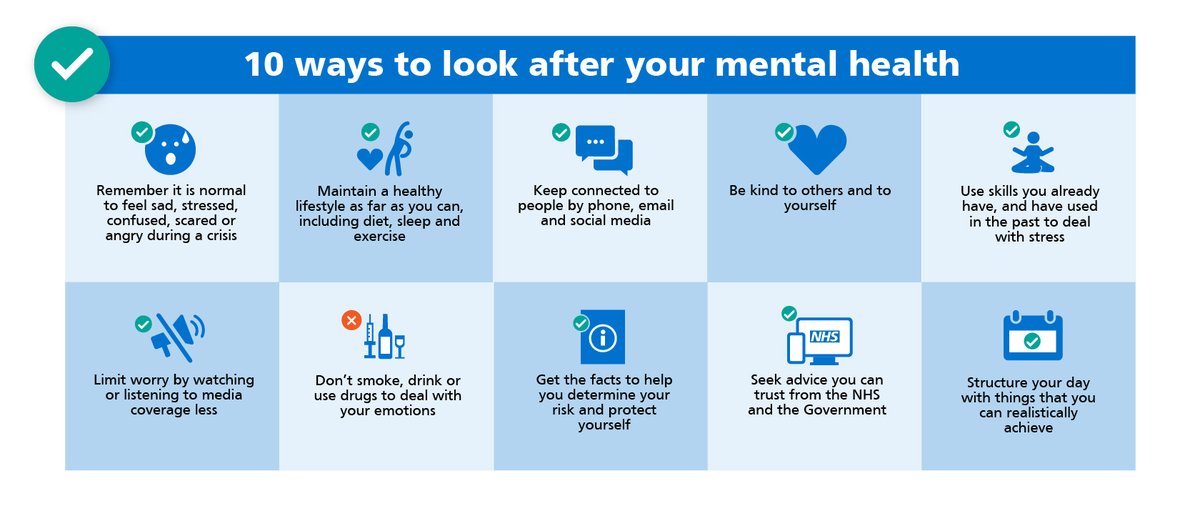 “Other people fear that looking at events from the past will be painful and upsetting, which is sometimes true. Again, however, it seems more logical and healthy to address the past events so they don’t keep having a negative influence on their lives rather than continue to repress or deny the events.”
“Other people fear that looking at events from the past will be painful and upsetting, which is sometimes true. Again, however, it seems more logical and healthy to address the past events so they don’t keep having a negative influence on their lives rather than continue to repress or deny the events.”
Another primary reason people avoid therapy is the fear they harbor: “Fear of change, fear of the unknown, fear that they may outgrow their friends, family, and loved ones,” as explained by Therapist Sarah Thacker.
“People also seem to be very afraid of feeling their feelings and of being judged. Vulnerability is hard, and therapy by nature requires being open, honest, and vulnerable, which does not come naturally for so many,” says Thacker. “Once people find therapy to be an accepting, safe place where they can open up at their own pace, they find it to be the best thing that they have ever experienced. They feel as though the growth, comfort, and ease that therapy can create opens them up to truly being their best self.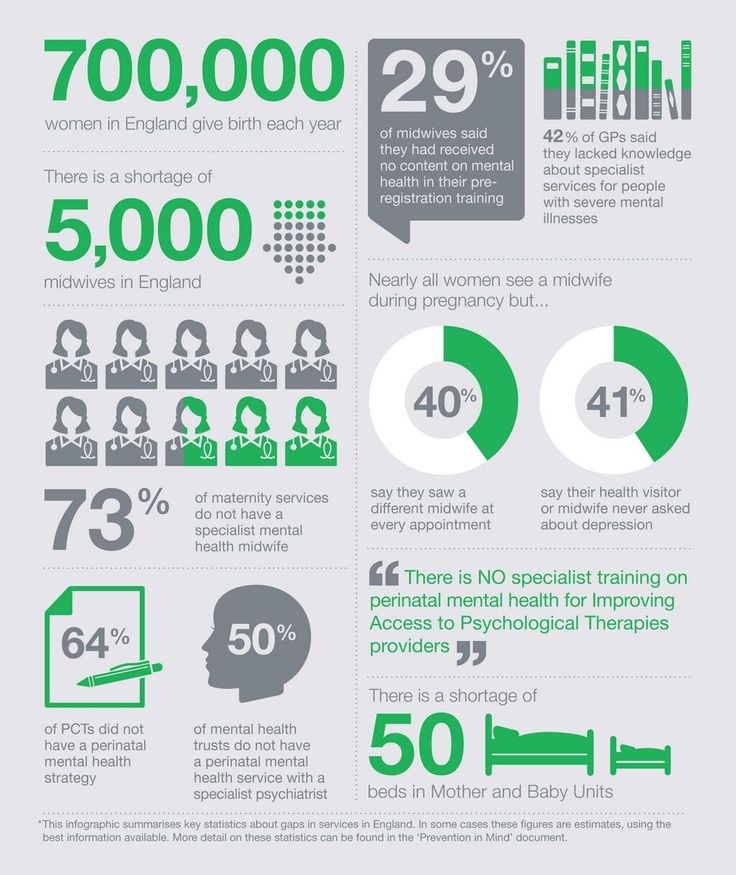 ”
”
People also forego mental health treatment because they’re misinformed about what it involves and how they’ll be perceived by their therapist. “Having been a therapist for several years, I have come across many individuals who are hesitant to engage in treatment. More often than not, people are misinformed about what therapy actually is,” Robyn Gold, Licensed Clinical Social Worker, explains.
“Many individuals have developed the belief that if they attend therapy, it means they’re crazy, which is simply just not true. I think this perspective is likely a result of how the media portrays mental health professionals,” says Gold.
6. Not giving it enough time.Finally, some people might give therapy a try but then stop before they can make any real progress. “Many people will meet with a therapist once or twice and then stop altogether, for a myriad of reasons,” says Emily Simonian, Licensed Marriage and Family Therapist (LMFT) and Head of Learning at Thriveworks.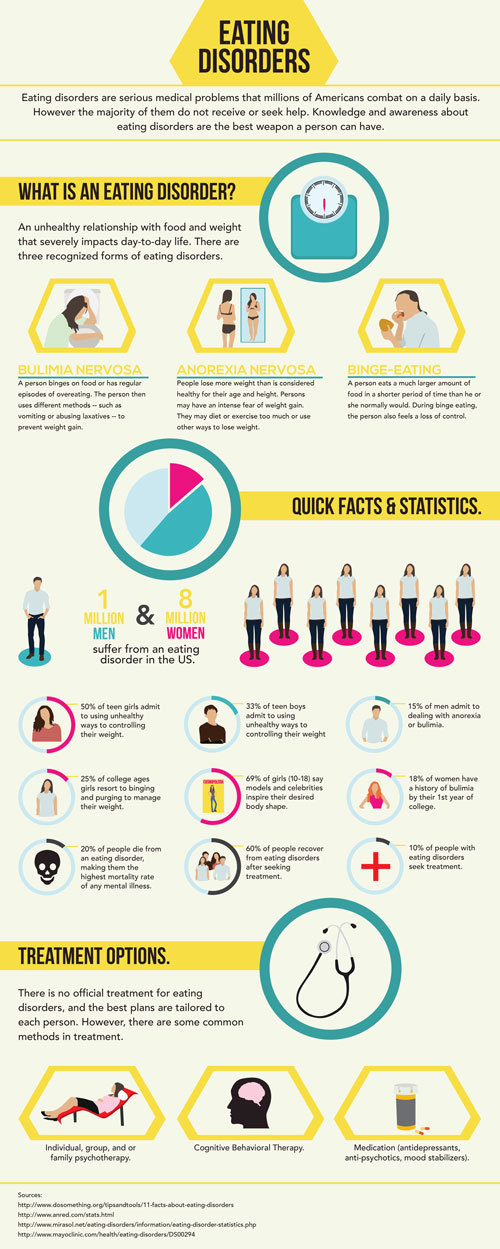
“Typically, that happens when they find dealing with emotions to be too difficult, they feel there should’ve been “results” right away, or maybe the therapist wasn’t a fit and they just give up,” she says. “The truth is that therapeutic change takes time (anywhere from 8-12 sessions on average) and choosing the right therapist for yourself is important, so you may have to try a few different providers before finding the right match.”
Why Russians are afraid to turn to psychiatrists
Where to go? Why are we so afraid to go to psychiatrists? And why is a government mental health program needed? The RG columnist talks about this with the chief psychiatrist of Moscow, professor, doctor of medical sciences Georgy Kostyuk.
Georgy Petrovich! The movie "It's a Mad, Mad, Mad World" was once very popular. How old do you think the name is? Agree, probably, each of us wants peace and quiet. Is this possible nowadays?
George Kostyuk: The name of the film is more than relevant. The world has not become any kinder or smarter. Is it really possible to call a healthy world where means of self-destruction have been created and are growing, capable of destroying all of humanity in a matter of minutes?
The world has not become any kinder or smarter. Is it really possible to call a healthy world where means of self-destruction have been created and are growing, capable of destroying all of humanity in a matter of minutes?
George Kostyuk: They will never stay. If only because if the same surgeons can be replaced by robots, then no Da Vinci, even with artificial intelligence, can replace us, psychiatrists. Because the main thing for us is the ability to communicate with the patient, to understand him, to sympathize with him.
How do medical graduates get into psychiatry? In particular, how did you, a former naval colonel, become the chief psychiatrist of such a powerful metropolis as Moscow?
Georgy Kostyuk: I am a retired colonel. And being a naval doctor, he was engaged in the same psychiatry. Service is hard work. And even such a seemingly trifle: the sailor does not receive news from his girlfriend or from his parents for a long time.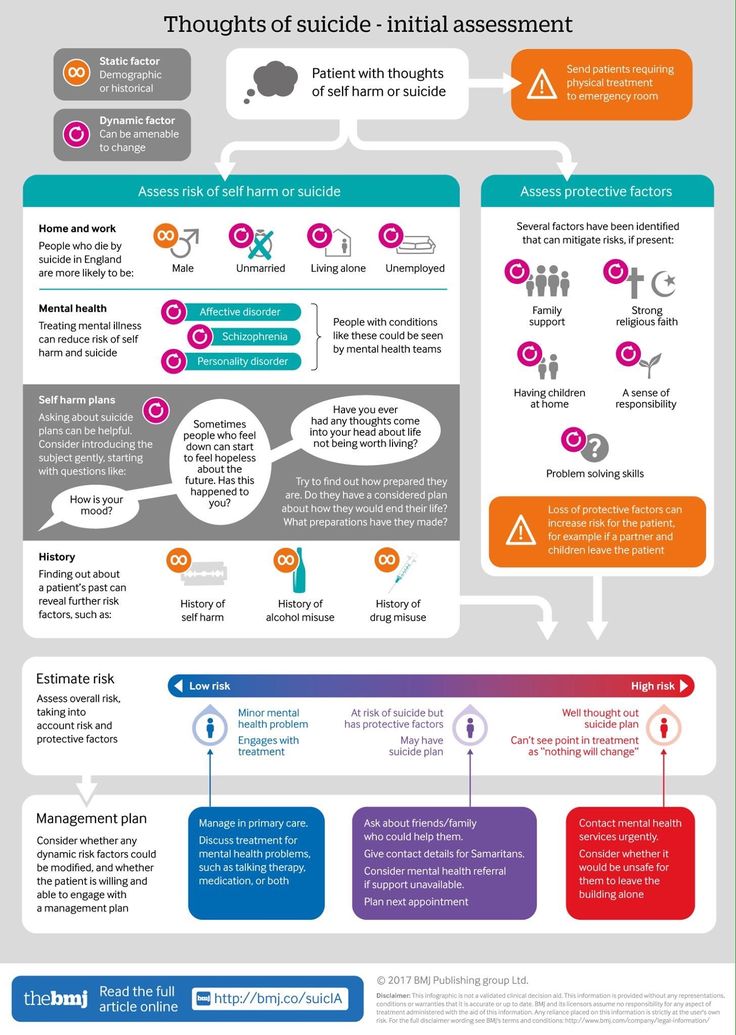 Falls into depression. And from this state it must be taken out. Having completed my service in the Navy, I switched to civilian life. And since I had a lot of administrative experience, I was offered to head one of the Moscow psychiatric hospitals. I did not become the chief psychiatrist of Moscow immediately, five years later.
Falls into depression. And from this state it must be taken out. Having completed my service in the Navy, I switched to civilian life. And since I had a lot of administrative experience, I was offered to head one of the Moscow psychiatric hospitals. I did not become the chief psychiatrist of Moscow immediately, five years later.
How exactly did you become a psychiatrist? In my diploma, like all graduates, in the section "specialty" is written "General Medicine". Everyone chooses the way forward. After the Kirov Military Medical Academy in St. Petersburg, I was assigned to a psychophysiological laboratory. There I quickly realized that it is very interesting, but gives an incomplete picture of a person. And then I formed a clear desire to become a practicing psychiatrist. You say it's a coincidence? I will answer as a psychiatrist: accidents are of great importance in our life. And this applies not only to people with mental disabilities, but without exception to everyone.
I was recently contacted by a relatively young and successful colleague. He had a request: to help find a specialist who would get rid of a terrible depression. He said that he had been to many specialists, taking a lot of prescribed medicines. And the depression doesn't go away. I had to honestly tell him that I don't know who to refer him to, I don't know how to help him. Unfortunately, that was before I met you.
He had a request: to help find a specialist who would get rid of a terrible depression. He said that he had been to many specialists, taking a lot of prescribed medicines. And the depression doesn't go away. I had to honestly tell him that I don't know who to refer him to, I don't know how to help him. Unfortunately, that was before I met you.
Georgy Kostyuk: I hope it is not too late to send him to us now. And we will try to help him. But in general, the problem of accessing and receiving psychiatric care is huge. And not only in our country. Moreover, the main thing in such situations is to overcome the psychological barrier. After all, from the mere thought that someone from relatives, colleagues will find out that a person has applied for psychiatric help ... This is a stigma for almost a lifetime. Many people are afraid of such a stigma more than anything in the world - both in the sense of a career, and in the sense of a profession, and, if you like, in the sense of having children.
Speaking of having children. Are mental disorders inherited?
George Kostyuk: Yes. There is a genetic predisposition. And I want to talk about one big trouble. In almost all countries of the world, various depressions, phobias, and stress disorders are treated by general practitioners. And turning to such a specialist does not cause any fears in anyone, there is no fear of the same psychiatric stigma. And I can't explain why our legislation says that if a person is depressed, he should go to a psychiatrist. Why do we have such distrust of general practitioners.
Maybe I'm wrong, but it seems to me that these are some echoes of our past, when, to put it mildly, objectionable famous figures were isolated in psychiatric hospitals. And there was no question of general practitioners there. If only because the control over the maintenance of such patients was special.
George Kostyuk: The first thing I would like to say. The flair of punitive psychiatry is greatly exaggerated. And I say this not as a former colonel, but as a modern psychiatrist. Abuses of psychiatry were, but no more than in any other country, including the most democratic. And they talked about them so much and so loudly because this is a taboo topic. And forbidden fruit is always sweet. But in the main you are right: today's problems are largely determined by these echoes.
The flair of punitive psychiatry is greatly exaggerated. And I say this not as a former colonel, but as a modern psychiatrist. Abuses of psychiatry were, but no more than in any other country, including the most democratic. And they talked about them so much and so loudly because this is a taboo topic. And forbidden fruit is always sweet. But in the main you are right: today's problems are largely determined by these echoes.
None of the eight federal targeted programs of the national project "Healthcare" affects psychiatry
Let's go down to earth. Is it possible to forcefully send a person to a psychiatric hospital?
George Kostyuk: Yes. Both involuntarily and involuntarily. Legislation provides for such a form of medical care for mental disorders. This is due to severe necessity. Because such a person can be dangerous both for others and for himself. The same suicides, as a rule, occur precisely in such people.
Open the procedure for referral to a psychiatrist, a psychiatric hospital. How does it work in practice now? It cannot be that someone in a state of passion offended someone, hit someone. You can understand: is it just a hooligan or is it a mental patient?
How does it work in practice now? It cannot be that someone in a state of passion offended someone, hit someone. You can understand: is it just a hooligan or is it a mental patient?
Georgy Kostyuk: You will be surprised, but you can always understand this. Not bad at this understand even the police, who are the first to be on the scene. If we are really talking about a mental disorder and the patient is a danger to himself and others, then the ambulance, even without the consent of the patient, must take him to a psychiatric hospital. In the hospital, the commission of psychiatrists has 48 hours to make sure that inpatient treatment is necessary. And again: even if the commission deems necessary inpatient treatment of such a patient, then this is not all. There must be a court order.
Who sues?
Georgy Kostyuk: Not relatives, not the patient himself, but the hospital administration goes to court.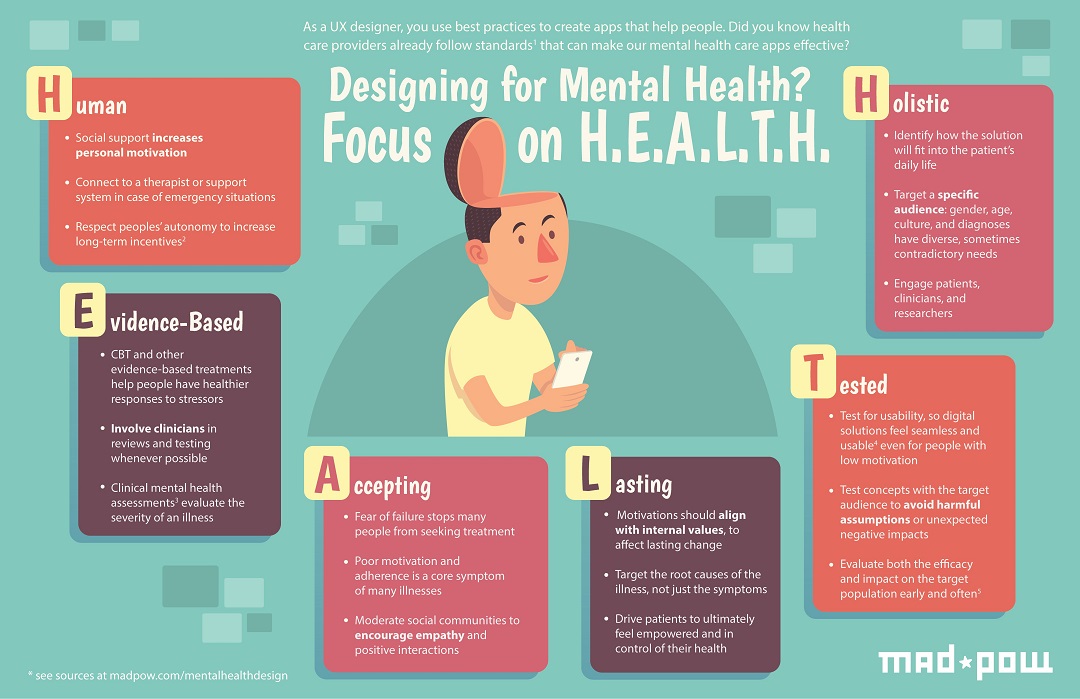 And the court makes a decision.
And the court makes a decision.
Once a diagnosis of schizophrenia can be subsequently removed? Or is it forever?
George Kostyuk: Schizophrenia is a primary chronic disease. In practice, such a diagnosis can only be canceled if it was made erroneously.
Does a person with schizophrenia have restrictions on certain activities?
George Kostyuk: There is a special government decree that defines the list of restrictions. Let's say he can't be a teacher working with children. And, of course, possession of weapons, control of an aircraft, etc. should not be allowed.
Is schizophrenia curable or lifelong?
Georgiy Kostyuk: If a person seeks help in a timely manner and follows all the instructions of specialists, the people around will never know about his illness. Unfortunately, there are no positions for psychiatrists or even a psychotherapist in the primary link.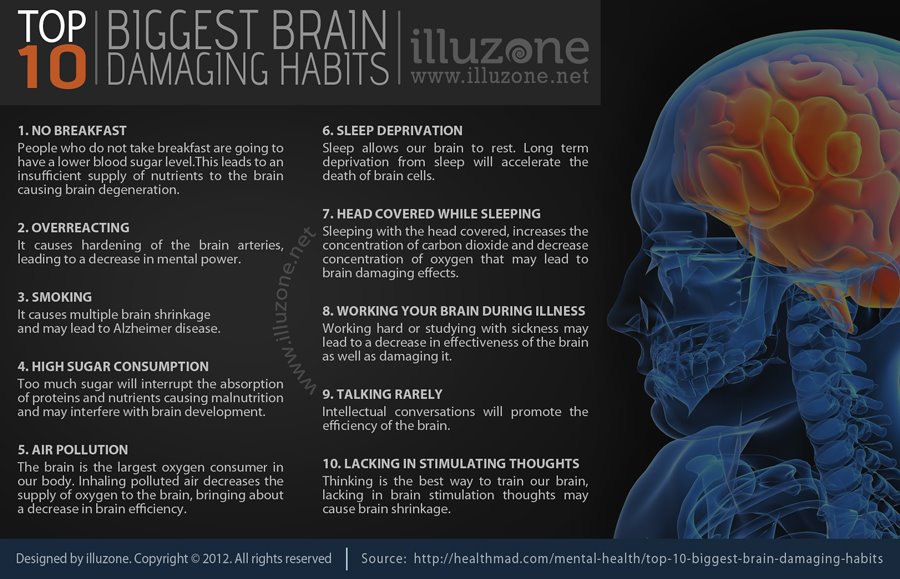 Therefore, a person even with ordinary depression has nowhere to go. He is forced to take various so-called sedative drugs at his own discretion or even as prescribed by the local therapist. Some relief occurs, but only some. I am convinced that now, when such attention is paid to the primary link, it is necessary that specialists in the field of mental health appear in this link, it is an integral part of a healthy lifestyle.
Therefore, a person even with ordinary depression has nowhere to go. He is forced to take various so-called sedative drugs at his own discretion or even as prescribed by the local therapist. Some relief occurs, but only some. I am convinced that now, when such attention is paid to the primary link, it is necessary that specialists in the field of mental health appear in this link, it is an integral part of a healthy lifestyle.
Do you have the patience to talk to people who are depressed? Can you tell me what to do, say, to my beloved heroine "Aunt Masha from the entrance" so that she does not go crazy or at least not become depressed?
Georgiy Kostyuk: Right now the definition of DNA has become a fashion statement, waiting for the results of which, probably, you can go crazy. Think it's not serious? Wrong! This is some manifestation of the madness of the world, when no one trusts anyone, when they begin to rely only on DNA. Now, when many people have an autumn blues, in order not to fall into depression, you need to be especially attentive to your lifestyle. The best means of prevention are healthy full sleep, less cigarettes and alcohol, more walks in the fresh air. And drive away black thoughts from yourself, do not let them take over you.
But these are general recommendations.
Georgy Kostyuk: Personal recommendations can only be formulated based on the results of an individual conversation, an analysis of specific circumstances. In each case, they can be their own.
78 years life expectancy of Russians until 2024 (up to 80 years by 2030)
There are state programs for oncology, cardiology, and children's healthcare. But for some reason there is no program for mental health, for the development of psychiatric services.
Georgy Kostyuk: You have raised a very sensitive issue. None of the eight federal target programs of the national project "Public Health" affects psychiatry. I would especially like to emphasize that by presidential decree, by 2024, the average age of the population should reach 78+ years, and by 2030 - 80+. In Moscow, such indicators have already been achieved. An increase in life expectancy is a great boon. But the added years of life should by no means become a heavy burden. Should not lead to an increase in the number of the same dementias in people of advanced age. And we need to think about it now. Clearly, a state mental health program is needed.
In Moscow, such indicators have already been achieved. An increase in life expectancy is a great boon. But the added years of life should by no means become a heavy burden. Should not lead to an increase in the number of the same dementias in people of advanced age. And we need to think about it now. Clearly, a state mental health program is needed.
Visiting card
Photo: Alexander Korolkov
Georgy Petrovich Kostyuk was born on February 2, 1970 in Zhitomir. Graduated from the Military Medical Academy in St. Petersburg in 1994. He served as the chief psychiatrist of the Baltic Fleet. Colonel of the medical service of the reserve. Since 2016, the chief physician of the N.A. Alekseev Psychiatric Clinical Hospital of the Moscow Health Department. Doctor of Medical Sciences, Professor. Author of more than 200 scientific papers on organizational and clinical problems of psychiatry.
Why are they afraid to see a psychiatrist?
Why are people afraid to see a psychiatrist?
Mental health is a very delicate area. At the same time, there is an opinion in Russian society that only “violent lunatics” are treated by a psychiatrist, and it is somehow not accepted to go to a doctor with an ordinary complaint (apathy, excessive irritability, insomnia). It often happens that a person feels pronounced manifestations of the disease, but does not go to the doctor until it becomes very bad. We have collected the most common fears that prevent people from contacting a psychiatrist in time and answer each one.
At the same time, there is an opinion in Russian society that only “violent lunatics” are treated by a psychiatrist, and it is somehow not accepted to go to a doctor with an ordinary complaint (apathy, excessive irritability, insomnia). It often happens that a person feels pronounced manifestations of the disease, but does not go to the doctor until it becomes very bad. We have collected the most common fears that prevent people from contacting a psychiatrist in time and answer each one.
“I'm afraid that they will treat me by force”
This fear comes from the Soviet Union, when the so-called punitive psychiatry existed. Usually, the frightened mind of the layman presents the situation as follows: “the district psychiatrist diagnoses me, at the same moment the orderlies appear, who take me by the arms to a closed ward of a closed hospital department.” One thing can be said here: fear has big eyes. Now “compulsory medical measures” (as it is called in the law) are applied only to criminal offenders who either committed their crime in a state of insanity, or fell ill with a mental disorder after the commission of the act and therefore cannot be held in places of deprivation of liberty - that is they need psychiatric help.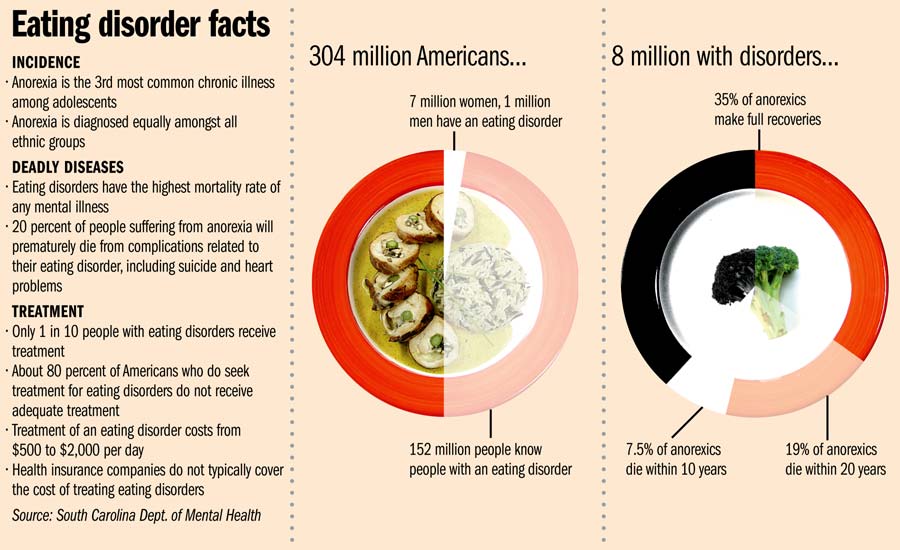 The application of medical coercive measures is regulated by 97th article of the Criminal Code of the Russian Federation. To summarize with cold cynicism: in order to be treated in a psychiatric hospital on a compulsory basis, you need to commit a criminal offense, be recognized as sick with a pronounced and acute mental pathology and, in connection with this, receive a court decision on compulsory treatment.
The application of medical coercive measures is regulated by 97th article of the Criminal Code of the Russian Federation. To summarize with cold cynicism: in order to be treated in a psychiatric hospital on a compulsory basis, you need to commit a criminal offense, be recognized as sick with a pronounced and acute mental pathology and, in connection with this, receive a court decision on compulsory treatment.
“I am afraid to visit the hospital because aggressive people are being treated there”
A modern psychiatric hospital is a whole infrastructure of many buildings and administrative buildings. In such a hospital, each category of patients is provided with the necessary conditions of stay. Yes, in any psychiatric hospital there may be patients who pose a threat to themselves or others (the so-called socially dangerous patients), but they are never in the same zone as those who came to the initial appointment. In addition, it is worth remembering that a psychiatric hospital is just the place where these socially dangerous patients are under the supervision of specialists. Both doctors and medical staff are aware that the patient can pose a threat to others and do everything possible to help him and minimize this threat.
Both doctors and medical staff are aware that the patient can pose a threat to others and do everything possible to help him and minimize this threat.
“I'm worried that someone will find out about my diagnosis”
Not only is a psychiatrist not required to report your diagnosis to your job, spouse, or school where your children attend, they don't have right to do it! The only exception would be a close family member whom you trust to manage your health information. But you are determined in this matter even before the diagnosis. By signing, you either consent or do not consent to the notification of your family about your condition. If you do not want even your closest relatives to know about your visit to a psychiatrist, write so on the consent form for treatment. In order for information about your health status to be kept secret from your friends, acquaintances, work colleagues, no special order is needed. You are protected by the "Law on Psychiatric Care and Guarantees of Citizens' Rights in its Provision".
“Why do I need a psychiatrist when you can buy sedative pills without a prescription”
Mental health care is not limited to drugs that can reduce your stress level or reduce your emotional reaction to certain life circumstances. The fact that you feel overly quick-tempered, "nervous" - can only be a symptom, a sign of the disease, but not the disease itself. What kind of disease is hidden behind these manifestations, only a psychiatrist can determine.
Remember that any drug that affects the central nervous system (even if you managed to get it without a prescription) affects your brain (otherwise it would not be called psychotropic). This seems to be sufficient reason to take such medicines only under the doctor's prescription and under his supervision. By self-medicating, you, at best, mask the symptoms of the disease, at worst, harm yourself, aggravating the disease.
“I am ashamed to be a mentally ill person”
For many, seeking help from a psychiatrist is the same as admitting that you are a “psycho”, signing your own insanity… Unfortunately, people suffering from mental illness have been subjected to ridicule and humiliation for centuries.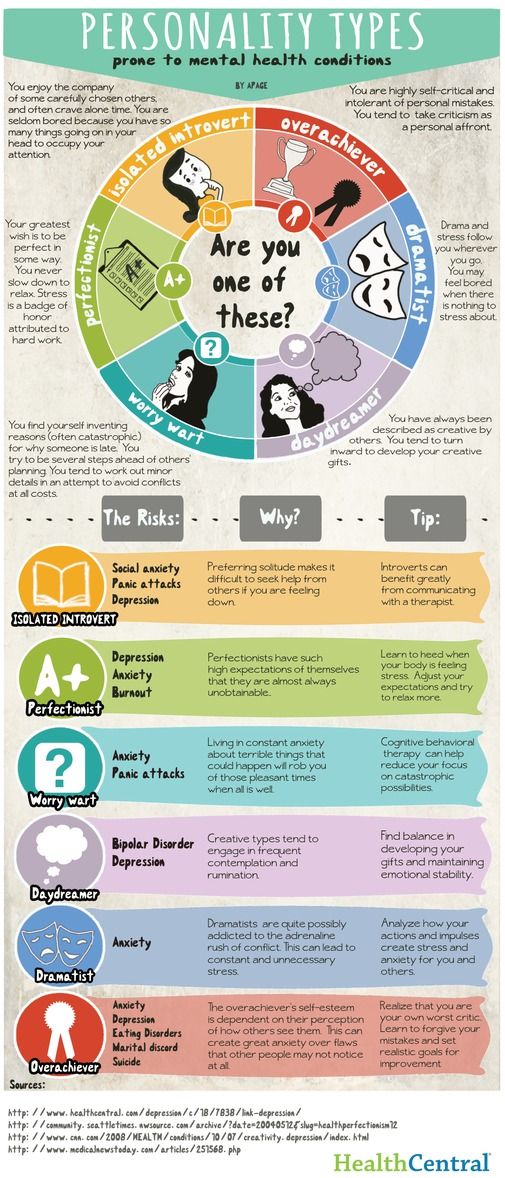 These traditional ideas about the mentally ill are partly alive to this day. An intolerant and contemptuous attitude towards people with mental disabilities is also enshrined in the language. The words “fool”, “idiot”, “crazy” imply an indication of a state of mental illness and at the same time carry the intonation of a negative and dismissive attitude. Many philistine myths are associated with mental illness: supposedly, the disease manifests itself due to the fact that impure forces are infused in a person, or it is a sign of damage and a curse. Some religious people view mental illness as a sign of God's most severe punishment. That is why a person suffering from a mental illness does not seek to make this fact public and often feels guilty and ashamed of his diagnosis. Psychologists who help people with mental illness in social adaptation recommend not focusing on the assessment of others, but seeking support in the family circle. If you have at least one close person whom you trust and who supports you, you already have a good chance of coping with the disease.
These traditional ideas about the mentally ill are partly alive to this day. An intolerant and contemptuous attitude towards people with mental disabilities is also enshrined in the language. The words “fool”, “idiot”, “crazy” imply an indication of a state of mental illness and at the same time carry the intonation of a negative and dismissive attitude. Many philistine myths are associated with mental illness: supposedly, the disease manifests itself due to the fact that impure forces are infused in a person, or it is a sign of damage and a curse. Some religious people view mental illness as a sign of God's most severe punishment. That is why a person suffering from a mental illness does not seek to make this fact public and often feels guilty and ashamed of his diagnosis. Psychologists who help people with mental illness in social adaptation recommend not focusing on the assessment of others, but seeking support in the family circle. If you have at least one close person whom you trust and who supports you, you already have a good chance of coping with the disease.
